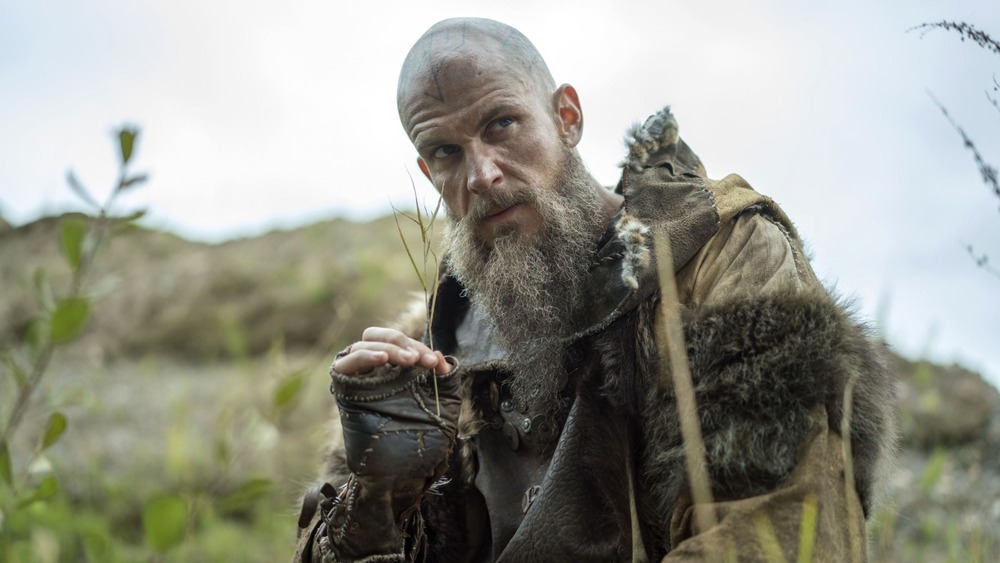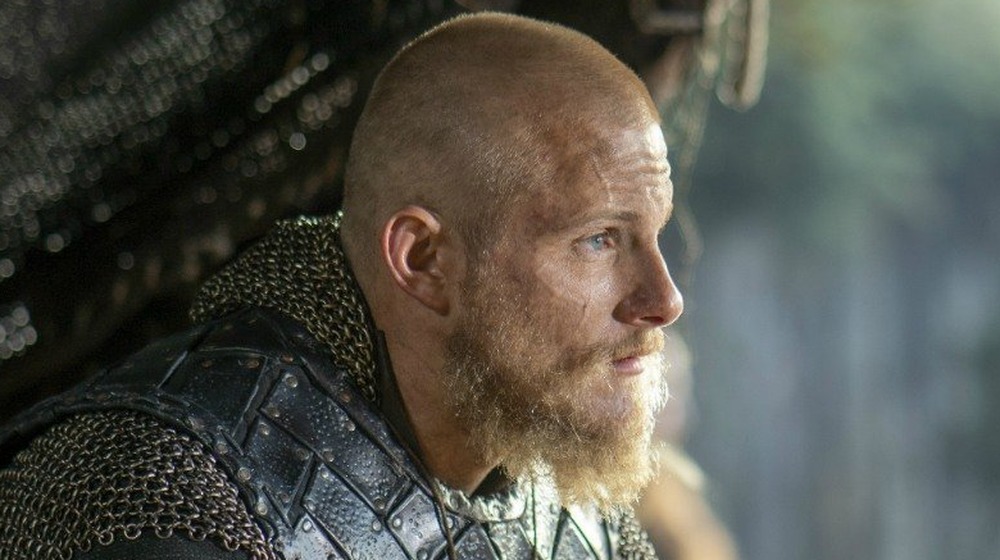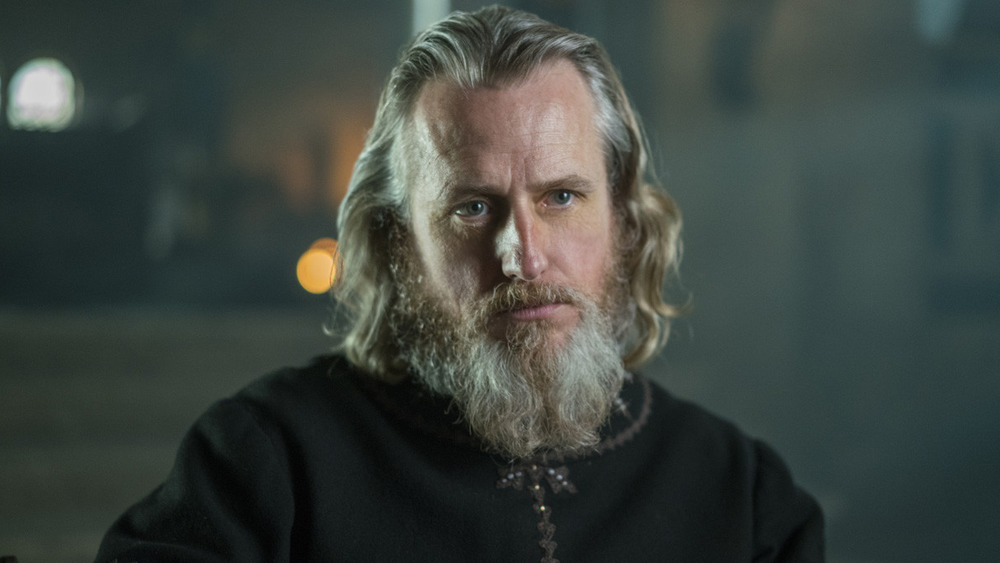Did Michael Hirst Sneak Another T.S. Eliot Reference Into Vikings Season 6?
Contains spoilers for Vikings Season 6, Part 2
Vikings creator Michael Hirst is an exceptionally well-read writer. His shows and movies – Vikings, of course, but also Elizabeth and The Tudors – are packed with historical and literary details. Before he became a screenwriter, he almost became an academic, and he has a degree in English and American literature from the University of Nottingham. So it makes sense that he likes to put allusions to the greatest British-American poet, T.S. Eliot (born in St. Louis, lived in London and became a British citizen), into Vikings, with characters quoting from Eliot on more than one occasion throughout the show's run.
The final half-season of Hirst's historical epic series is now streaming on Amazon Prime Video, and the last scene of Vikings' last episode may contain one last reference to Eliot, according to Reddit user RowellTheBlade, who posted on the Vikings subreddit that they think Floki's (Gustaf Skarsgård) closing dialogue is one last reference to Eliot's famous poem "The Waste Land": "Basically, the journey through 'The Wastelands' seems to be over for our heroes."
The final scene finds Floki and Ubbe (Jordan Patrick Smith) sitting on a beach in the Golden Land, watching the sunset. The war is over, and everything from the past that Ubbe was holding onto is gone, and now the future can be whatever it will be. There's no direct reference to "The Waste Land" in the scene, but there could be an echo of the poem's final ten and a half lines, which begin with "I sat upon the shore" and conclude with "Shanti shanti shanti" ("peace peace peace"). The final scene is peaceful and meditative, with its characters having crossed the waste land (the sea), like the Fisher King did.
Fear in a handful of dust
If RowellTheBlade is picking up on an Eliot allusion in the final scene, it's because there have been direct quotations from the poet earlier in the show's run. In episode 2 of season 6, when Bjorn Ironside (Alexander Ludwig) is asking the Seer (John Kavanaugh) for advice, the Seer says, "From either your shadow at morning striding behind you or your shadow at evening rising to meet you; I will show you fear in a handful of dust," which is a direct quotation from "The Waste Land." Apparently the Seer could see into the future all the way to 1922, when "The Waste Land" was published, and was interested in Modernist poetry.
Before that, in episode 18 of season 5, King Olaf (Steven Berkoff) appears before Hvitserk (Marco Ilsø) as the Buddha in a torture-induced vision and says "Datta. Dayadhvam. Damyata." ("Give. Sympathize. Control.") This is the second-to-last line of "The Waste Land," and is actually a quote from Hindu scripture, not Buddhist.
The first time Eliot appeared in Vikings was in season 3, episode 9, when Hirst lifted a section of Eliot's 1936 poem "Burnt Norton" (the first of his Four Quartets set of poems) and gave it to King Ecbert (Linus Roache), who recites a section of the poem to Princess Judith (Jennie Jacques), his daughter-in-law whom he lusts after. These are the words of a man who wishes he was with someone who is with someone else:
"What might have been is an abstraction/ Remaining a perpetual possibility/ Only in a world of speculation./ What might have been and what has been/ Point to one end, which is always present./ Footfalls echo in the memory/ Down the passage which we did not take/ Towards the door we never opened"
'The lines are about time'
In an interview with Creative Screenwriting in 2016, Hirst talked about why he quoted from Four Quartets for Ecbert's scene, despite the poem being written a thousand years after Vikings takes place. "The reason that I thought I could do that is because the lines are about time," Hirst said. "Eliot thought the time past and time future are both contained within time present. I thought that that was really what I was talking about within the show — connecting past, present and future."
Hirst said he originally used the lines as a mood-setting placeholder until he could come up with his own dialogue. "But it was what I was trying to say," he said. "And every time I tried to rewrite the lines, I couldn't do better. Everything sounded stale and poor when compared to Eliot." So he borrowed it. And after he quoted Eliot once and got a good reaction — Hirst claims the head of the English studies department at Harvard said it was "very cool" — he kept doing it.
Since T.S. Eliot's idea that "time past and time future are both contained within time present" is woven into Vikings, it makes sense that Michael Hirst would echo that again in the series' final scene. Floki says that Ragnar (Travis Fimmel), who is dead, visits him at night, asking him to build him a new boat. Everything is always happening at once.


